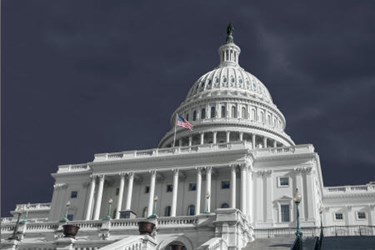Scientists Say U.S. Must Raise Investments, Develop Workforce To Lead Quantum Computing Race
By Jof Enriquez,
Follow me on Twitter @jofenriq

Representatives from government, academe, and industry say the United States should strengthen collaboration, increase funding, and build an interdisciplinary workforce who will develop photonics-enabled quantum technologies, which will be critical to the country's global competitiveness and security in the near future.
Testifying before the U.S. House Subcommittee on Research & Technology and the Subcommittee on Energy, six quantum information science experts said that progress in quantum technology is at an "inflection point" that the U.S. must recognize and use to claim a position of leadership, lest it risk falling behind other countries in the race to harness quantum information science, reports the Wall Street Journal.
"US leadership in quantum technology will be critical to our national security, and will open new doors for private industry and academia while ensuring America's role as a global technology leader in the 21st century," said Dr. Christopher Monroe, founder and chief scientist at IonQ, Inc., as well as a professor of physics at the University of Maryland. Moore testified on behalf of the National Photonics Initiative (NPI), an alliance of academia and industry focusing on photonics-enabled technologies.
During the “American Leadership in Quantum Technology Hearing,” Monroe highlighted large and focused quantum technology programs launched in the last few years by China, Japan, Canada, Australia, Germany, the United Kingdom, and the European Union, each of which features massive funding initiated by its government, with tight industry collaboration.
By contrast, quantum science development in the United States – historically was at the forefront of many breakthroughs in quantum science – today remains “decentralized” despite recent efforts by tech companies, such as IBM and Microsoft, to advance quantum technology from labs into real-world applications.
“Now is the time for the federal government to help expedite advancements in [quantum] technology to maximize its benefits for the US,” said Scott Crowder, CTO and VP of quantum computing, technical strategy and transformation, IBM, reports SPIE’s Optics.
Monroe renewed NPI's call for a National Quantum Initiative (NQI) to accelerate the development of commercially available quantum-based technologies, facilitating growth in the U.S. economy and keeping pace with international competition.
NQI proposes an initial public investment of $500 million over five years in several “Quantum Innovation Labs,” which will bridge the gap between research and development.
“At universities we don’t build things – we don’t do engineering. On the other hand, industry doesn’t have the engineering background [needed]. Industry is making a big play in this field, but [there is a] big challenge,” said Monroe, according to Optics.
Quantum Innovation Labs aims to train a new generation of quantum engineers armed with the foundation of quantum mechanics combined with computer science, while embedding industrial engineers in government and academic laboratory settings.
“While the U.S. remains a leader in the field, other nations have made significant new investments and have developed long-term strategies that already have shifted the geographical distribution of top-tier research groups” said Dr. John Stephen Binkley, acting director of science, U.S. Department of Energy.
Developing a globally-competitive workforce from all STEM (science, technology, engineering, and mathematics) fields who will work on quantum information science projects in the United States should be a priority.
“We need to continue to invest in basic research, but we must also take steps to ensure that we have the workforce that the future will demand. The United States must cultivate a new generation of visionary entrepreneurs and additional millions of scientists, engineers, designers, programmers and technicians who can compete in quantum-enabled technologies,” said Full Committee Chairman Lamar Smith (R-Texas).
